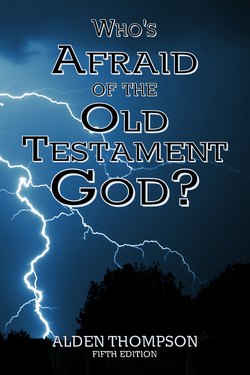Читать книгу Who's Afraid of the Old Testament God? - Alden L Thompson - Страница 7
На сайте Литреса книга снята с продажи.
A “BETTER” REVELATION?
ОглавлениеRight at the beginning of this chapter I noted the sharp contrast that is often drawn between the Old Testament and the New. That contrast is very important and we must not simply deny that it exists, for the very fact that God has chosen such different ways of revealing himself is part of the truth that he wants us to understand. We need no better authority than the book of Hebrews to remind us, that, in some ways at least, the New Testament revelation of God is, in fact, better. The theme of the entire book is that the revelation of God in Jesus Christ is “better.” The very first verse reminds us that in times past God used other methods of revealing his will, but now he has spoken through his Son (Heb. 1:1-2). But in chapter twelve the contrast is even more explicit: you have not come to a mountain of smoke, fire, and fear, but to Mt. Zion and to Jesus (Heb. 12:18-24). When I finally realized what those verses were saying, I was startled, for I had grown up in a Christian community which stressed the significance of the Sinai revelation. So in the light of a “better” revelation (the clear thrust of the book of Hebrews), what are we to do with the older revelation, the one which centers on Sinai?
For a start, the word “better” can express two rather different emphases. First, “better” is often simply in contrast with “worse”: yesterday your cold was “worse”—running eyes, a frightful cough, a hoarse voice—but today it and you are “better.” If that is the sort of contrast intended in Hebrews between the “better” Jesus Christ and the “worse” Mount Sinai, then the God of Sinai is indeed in trouble—as well as anyone who attempts to proclaim that both revelations are part of the Christian faith.
The second way of looking at “better” is to see it simply as the comparative of “good”; the revelation at Mount Sinai was good, and the revelation in Jesus Christ was “better.” Maybe we could even add the superlative: personal reunion with God in his kingdom will be “best.” If we can take such an approach to the two historical revelations of God, then there is no need to reject the first revelation; rather we may see it as a major step in God’s plan of restoring humanity, and it is a good step at that. In fact, the Sinai revelation was precisely what God’s people needed at that time.
One illustration that has helped me to visualize the relationship between “better” and “good” has to do with my boyhood experience with the family cars. It fell to my lot to keep the “buggy,” as we affectionately dubbed it, clean and polished. Over the weeks and months I became quite good friends with the car. I knew each scratch and chip and did my best to touch them up or to polish them out. This personal friendship with the car became a problem only when it finally became evident that a new and better car was needed. I well remember when we sold our beloved little 1950 Chevrolet. It had been a good car, even though we had moved on to something better—a 1956 Ford. Thereafter I would occasionally catch a glimpse of the Chevy, now under the care of its new owners. A peculiar sensation of excitement and disappointment would strike me: “There’s our old car! Oh, but it’s not ours any more!” Perhaps those feelings explain why that next car, the '56 Ford, is still in the family. Its finely polished, deep metallic green is still a sight to warm the heart. Newer and better cars have come and gone, but that old one is still “good.” It doesn’t have air conditioning, something very helpful in the desert regions of the West, and we probably wouldn’t take it on a long trip, but it was and is a good car. When we first bought it, it was just what the family needed and even now is a source of warm memories—as well as quite an adequate vehicle for short journeys.
I look on the relationship between Mount Sinai and Jesus Christ in a very similar way. I find the revelation of God in Christ a clearer and better revelation, but I certainly need not deny the marvelous experience that God gave to his people at Mount Sinai. It was just what they needed and it was good. Even today I can relive that experience and be blessed. The fullness of the revelation in Jesus can be joyfully received as Part Two of God’s great drama without detracting in the slightest from the marvels of Part One as described in the Old Testament. With any good book it is possible to hasten ahead and read the conclusion without ever bothering with what precedes. If we do that with our Bibles, however, we are missing a real treat and we are letting the New Testament get in the way of the Old. Yes, the New Testament revelation of God is clearer and therefore in some ways better. But if we neglect the Old in favor of the New, we shall never really experience that peculiar kind of joy that comes from experiencing the movement of God’s great plan from “good” to “better”—and to “best.”
